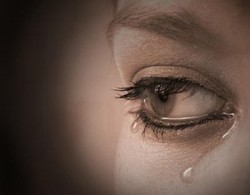Don't you just hate exercise!?
Exercise is proven to help boost your endorphins and your serotonin levels, thereby combating the effects of depression.
Does it work?
For me, it has a very small effect on my moods. Maybe I'm just not doing it enough but I do try and walk every day. If I don't, I do feel pretty grotty (lethargic).
Here are some exercises you can do to help beat SAD and depression:
1. Yoga focuses on deep breathing, increasing blood flow, and vitality and it strengthens all of your body's major muscles.
The Forward Bend
Stand up, reaching as high as you can over your head. Inhale. As you Exhale, bend forward and reach down with your arms. Stay in this position for 3 breaths. Return to the standing position by slowly uncurling your body one vertebrae at a time. Repeat for a further 5 times.
2. T'ai chi helps the body to retain energy. The slow moving exercises help build up stamina and circulate oxygen. It also helps to improve balance and posture, toning your legs and bum.
The Golden Rooster Stands on One Leg
Bend your right leg and lift to waist height. Whilst doing so, bend your arms so that your palms are facing upwards. Hold for five seconds and lower. Repeat with the other leg.
3. Kickboxing helps you to focus. It will improve your attention span, sculpts your arms, legs, and bum and burns off 650 calories an hour.
From a 'ready' position: left leg slightly in front of right, Do a left jab, right jab, left hook, right hook, front kick with right leg. Repeat this 5 times. Switch sides and do the kick with the left leg instead.





















 The Mystery Predators of Britainon 12/05/2024
The Mystery Predators of Britainon 12/05/2024
 Support Your Local Pet Rescue Charityon 12/05/2024
Support Your Local Pet Rescue Charityon 12/05/2024
 Could Equine Assisted Therapy Benefit Those With Personality Disorderson 12/05/2024
Could Equine Assisted Therapy Benefit Those With Personality Disorderson 12/05/2024
 How To Use Equine Photography For Mental Health Therapyon 12/01/2024
How To Use Equine Photography For Mental Health Therapyon 12/01/2024



Comments
Thank you so much :D:
The United States has social security as retirement pension for those who retire at retirement age and for those who retire within a narrow time-span just a bit early (and therefore known as early retirement).
It also has social security as security supplemental income. That SSI may be awarded at ages far earlier than official early retirement and official standard retirement ages. One category notes as its awarding depression.
Would the United Kingdom have a similar system?
Tina, this is a vital article that can serve many well. Thank you for taking the time to consider and commit to an inspiring and motivational message.
Warmth appeals to me in its comfort and comfortability.
A chilly atmosphere encourages my employing electric blankets, heating pads and sheets heated such as by 15 minutes atop a heating vent.
Is there any tradition within depression therapy of such heated covers inspiring improved emotional, mental, physical, psychological health?
Your wizzley on animal therapy appears helpful and relevant here.
But did you see any wizzley ads for robotic cat -- especially Luna -- and rabbit sentients?
They look so adorable and move so adorably that might they be next best to the real sentients, albeit never as replacements, only as supplements?
Your fifth subheading, Take Care of Other People, advises us in its last two sentences that "looking after other people can help feel good about yourself. It can give you a sense of importance and value and the appreciation of others for the work that you do is second to none."
Can the taking care of others comprise our sentient animals?
For example, can it constitute caring for butterflies whose constricting numbers concern butterfly lovers and scientists?
Or does devoting time at the animal-rescue shelter during play time with the feline sentients and leashed-walking time outdoors with the canine sentients do it as well?
Of course!
A watery context can correlate with exercise and with relaxation.
For example, water functions as exercise when in a swimming context even as it functions as relaxation when in a bath or hot-tub context.
Might such a context matter against depression?
It is very important. St John's Wort has been mentioned countless times with regards to helping with depression. As far as I know, most sources cite the problem with interactions.
Thank you for your comment below, in answer to my previous observation and question.
Mayo Clinic, headquartered in Rochester, Minnesota, approaches St. John's wort as a supplement in liquids, tablets, teas and topical preparations. They consider the doctor-consulted dosage as safe for 12 weeks at a time. Their website otherwise describes the cautions that your text does.
It's so important to inform oneself about natural and pharmaceutical treatments, isn't it?
One otherwise is perhaps self-dangerously ignorant of St. John's wort interactions with prescription medicine and of its side effects.